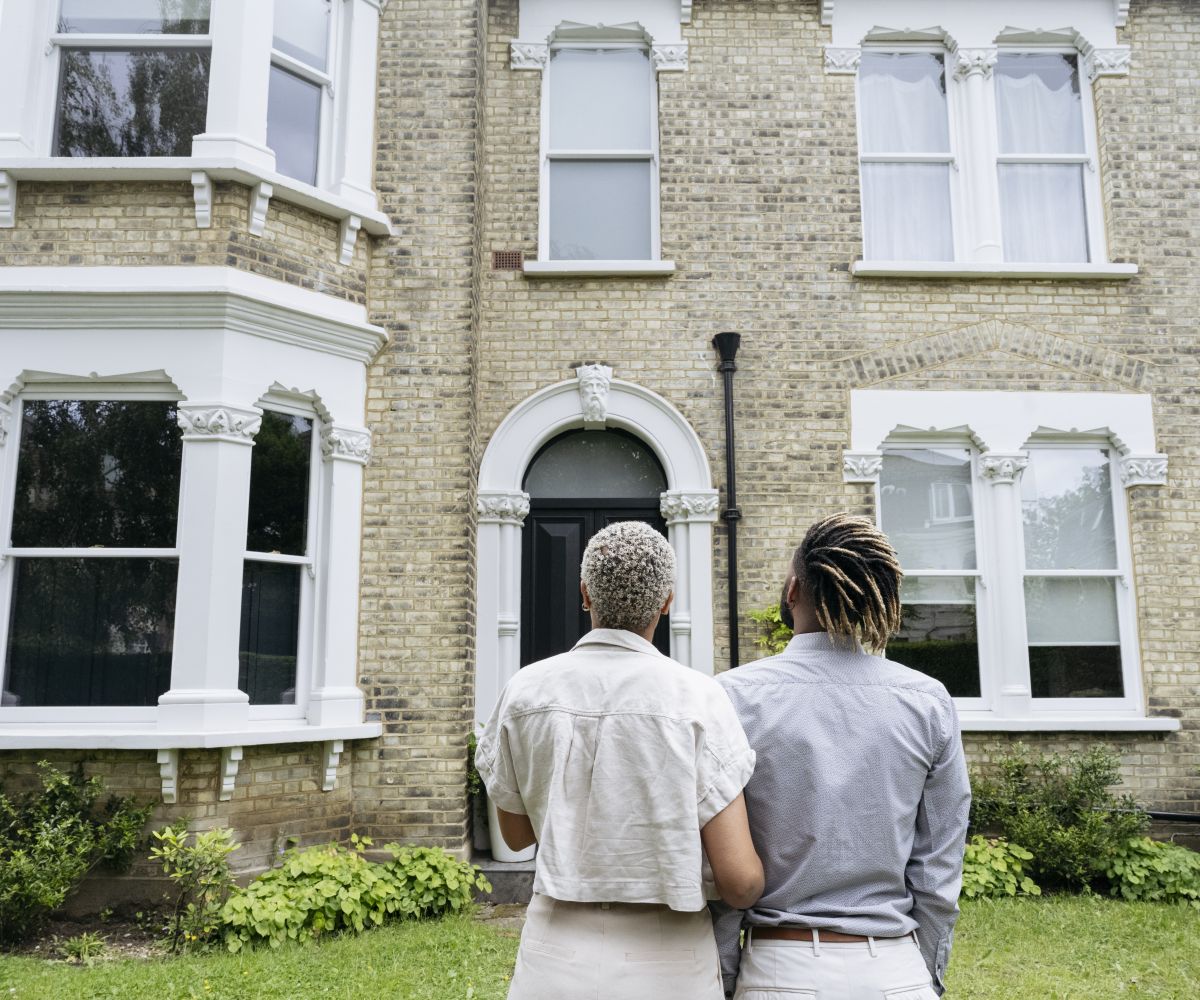Homelessness, Housing and Affordability in North Texas

This summer is on track to be among Texas’ most extreme seasons on record, with scorching temperatures throughout the day and little relief at night. The unrelenting heat has raised concerns among community organizations and housing advocates about unhoused individuals and families across North Texas.
Extreme heat can be dangerous for our unhoused neighbors, because they are often unable to escape the elements. In the North Texas summer, people experiencing homelessness are especially vulnerable to heat-related illness, which can damage vital organs and even result in death.
At United Way of Metropolitan Dallas, we understand that preventing homelessness and encouraging housing stability are foundational to our mission of improving access to education, income and health—because all North Texans need a safe, stable home environment in order to thrive in these three interconnected areas. We work in partnership with community organizations and our supporters to prevent homelessness, encourage the development of affordable housing and lift up our neighbors experiencing homelessness.
This summer, the dangerous weather conditions make it the perfect time to check in on the state of homelessness and housing in North Texas, with a look at key insights from two recent reports that dive into these interconnected issues. Read on to learn more about homelessness and housing accessibility in North Texas, how United Way improves housing stability and ways you can support our work in these areas.
The State of Homelessness in North Texas
Each year, nonprofit organizations, community organizers and volunteers come together for the Point-in-Time Homeless Count, an effort that is led by Housing Forward. Over the course of a single evening, participants take to the streets of Dallas and Collin counties to manually count every individual experiencing homelessness at that moment in time.
By regularly counting the unhoused neighbors in our community, Housing Forward (formerly Metro Dallas Homeless Alliance) collects vital data on a population that can be difficult to quantify. These insights allow us to understand the extent of homelessness in North Texas, factors that are impacting current homelessness rates and the effectiveness of programs that seek to end homelessness.
In 2023, the Point-in-Time Homeless Count, which was held Jan. 26, revealed several positive trends, including:
- Year over year, there was a 4% decrease in the number of people experiencing homelessness and a 14% decrease in unsheltered homelessness.
- Compared to 2022, there was an 18% increase in people exiting to permanent housing, and 92% of that group remained housed after 12 months.
- Chronic homelessness decreased 32% since 2022.
These numbers indicate that our community is making progress by implementing permanent solutions that prevent homelessness—such as housing stability programs and support of more affordable housing—while also serving people who are already experiencing homelessness.
Unfortunately, this year’s count also revealed some ongoing challenges:
- Veteran homelessness increased 21% since last year.
- Homelessness among youth and families also increased, by 18% and 15%, respectively.
- Homelessness still affects Black North Texans more frequently. This year’s count found that while Black households make up 20% of the general population of Dallas and Collin counties, they account for 59.5% of the homeless population in those areas.
These numbers indicate that there is still plenty of work to be done to address the inequities that many North Texans—including individuals, families and people of color—face.
Housing Affordability and Accessibility
A lack of affordable housing is one of the biggest contributors to our region’s homelessness situation. And unfortunately, our supply of affordable housing is only getting more limited, according to a new report.
“The State of Dallas Housing: 5-Year Comparison Report”—which was prepared by buildingcommunityWORKSHOP and sponsored by United Way of Metropolitan Dallas, The Dallas Foundation and The Meadows Foundation—focuses on the ways in which Dallas’ housing landscape has changed over the last five years.
The report found that multiple factors are making homeownership significantly challenging for North Texans with incomes at or near the median (around $58,000 a year). For example:
- Dallas has 38,642 fewer homes valued at or around $100,000 when compared to 2016, which marks a significant decrease in the amount of housing stock available to homebuyers making $25,000 to $35,000 a year.
- Dallas is losing housing stock that would typically be associated with “naturally occurring” affordable housing (homes that become more affordable as they get older). The majority of housing stock lost was built between 1940-1990, which commonly provides housing affordable to low- to moderate-income households.
- Compared to 2016, Southern Dallas has 40,215 fewer homes valued at $150,000 or below. In 2021 only 12% of home sales in Southern Dallas were in the $150,000 or less price range.
Meanwhile, as the cost of buying a home puts ownership out of reach for many North Texans, rental prices reached an all-time high in 2021. Although average rents have started to stabilize over the last year or so, the average one-bedroom rental is still more than $1,350 and the average two-bedroom is more than $2,000—far beyond what many local families can afford.
When people don’t have access to affordable housing, they often struggle to balance rent, bills and other financial responsibilities. For many North Texans, it becomes impossible to keep up with a high rent or mortgage payment, which can lead to homelessness. That’s why at United Way of Metropolitan Dallas, our work includes improving housing stability and preventing evictions so we can keep people from entering the cycle of homelessness.
United Way Prevents Evictions and Supports Affordable Housing
Homelessness is a complex problem that requires multifaceted solutions and broad community involvement.
“Homelessness does not exist because of one, single factor—rather, it’s a series of forces that manifest as homelessness,” said Ashley Brundage, executive director of housing stability and senior vice president of community impact at United Way of Metropolitan Dallas.
In the 2022 State of Homelessness Address, Brundage explained that the systems in place to help prevent and end homelessness are just as complex. But they can essentially be broken down into four parts:
- Prevention programs that stabilize individuals to make sure they don’t fall into poverty
- Housing creation to actively expand affordable housing
- Rehousing services, where organizations engage with people experiencing homelessness, bring them into shelters and then rehouse them
- Street services to manage and care for individuals living on the streets
Many of our community partners, such as Housing Forward, excel at services such as rehousing and care for people who are already experiencing homelessness. At United Way of Metropolitan Dallas, we work further “upstream,” with a focus on preventing homelessness by improving housing stability for North Texas families and advocating for affordable housing.
One successful prevention initiative is the Dallas Rental Assistance Collaborative (DRAC), which provides rental and utility assistance so people can stay in their homes. In the early days of COVID-19, as federal relief dollars began flowing to our region to prevent an eviction crisis, the City of Dallas chose us as a trusted partner to help lead DRAC and unite the community around the issue of housing stability.
Working with more than a dozen partner organizations, we served more than 7,000 households throughout the height of the COVID-19 pandemic. Beginning in March 2020, DRAC provided more than $30 million in rental and utility assistance, helping to prevent an eviction crisis in our communities.
In 2021, we also helped launch the Targeted Eviction Prevention Program (TEPP), which provides comprehensive case management to families on the verge of eviction to help stabilize their lives.
Meanwhile, we advocate continually for policy changes that will increase the supply of affordable housing in North Texas. During the most recent Texas legislative session, our team provided a unique perspective to the housing policy landscape based on our experience providing rental assistance. Through testimony and one-on-one meetings, we provided insight into the efficacy, administration and benefits of certain policies to help give legislators a well-rounded understanding of the obstacles facing tenants, and benefits and disadvantages of varying solutions.
You Can Improve Housing in North Texas
If you’re interested in working with us to improve housing stability in our community, here are three ways to get involved right now:
- Give: Donate to United Way of Metropolitan Dallas to support housing stability and eviction prevention initiatives.
- Advocate: Call or email your representatives and tell them you support affordable housing throughout our community. (Click here to find your elected officials and their contact info.) And be sure to sign up for our Advocacy Alerts to receive information on our top policy priorities, such as affordable and equitable housing.
- Volunteer: We frequently host volunteer events that support housing stability and homelessness prevention. Fill out our general volunteer interest form, and we’ll let you know about upcoming programs that fit your interests.
Tags

Invest in Housing Stability
Together, we can ensure all North Texans have the opportunity and access to achieve housing stability. Click below to make an investment in the future of our community today.


